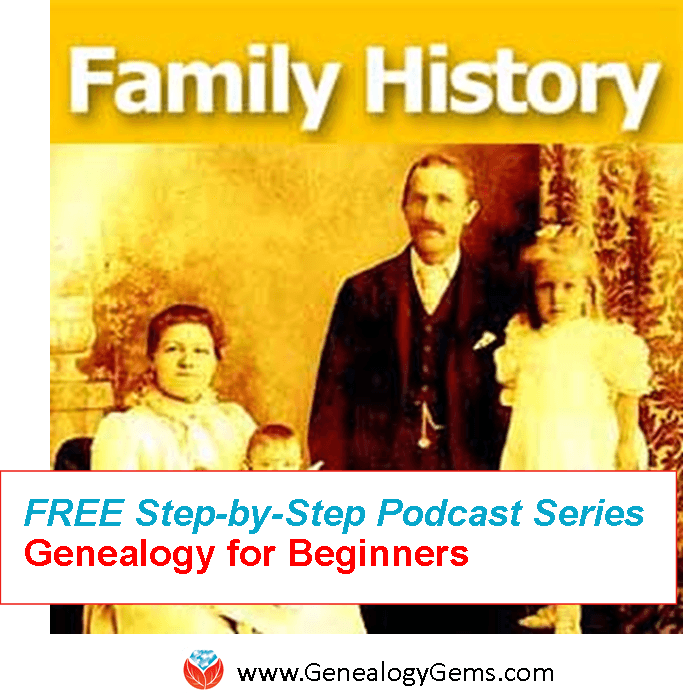Family History: Genealogy Made Easy Podcast
with Lisa Louise Cooke
Republished June 11, 2014

Listen to the Family History: Genealogy Made Easy podcast by Lisa Louise Cooke. It’s a great series for learning the research ropes and well as refreshing your skills.
Download the Show Notes for this Episode
Welcome to this step-by-step series for beginning genealogists—and more experienced ones who want to brush up or learn something new. I first ran this series in 2008-09. So many people have asked about it, I’m bringing it back in weekly segments.
Episode 35: Do Your Genealogy at the Public Library, Part 2
In Episode 34, Patricia Van Skaik, Manager of the History and Genealogy Department of the Public Library of Cincinnati and Hamilton County, talked with me about the unique genealogical resources in public libraries just waiting to be discovered. She gave us some great ideas on how to prepare for your visit to get the most out of your time at the library.
Today, we go deeper into genealogy research at the public library. Pat is back and she talks to us about:
- How to search an online library card catalog, including advanced search methods;
- What kinds of unique collections may be at public libraries, and helps us learn to ask for exactly what we want!
- The obstacles librarians face when it comes to cataloguing large and unique collections that may interest genealogists.
So dust off your library card and grab your book bag and let’s head back to the public library!
Top Library Tips from Pat and Lisa
- You don’t have to be advanced on computers to use advanced searches. Use these to home in clearly on what you’re looking for!
- Don’t think of the public library as just as place to go look at their holdings. Talk to librarians about how to use resources (databases, websites) and how to evaluate what you’ve discovered.
- Some items are buried at the library. Asking for help may lead to accessing just the records you want. Examples include items in pull-out collections, closed stacks (not in the public areas of the library) and maps, which aren’t always listed in the card catalogue.
- Tell the staff what materials are important to you. Your interest may lead these items to become more accessible, or be indexed or digitized.
Separate your search terms in advanced searches. Don’t just keyword search “marriages San Francisco.” Enter these terms separately in the advanced search. You may bring up items not found while searching these keywords together.
A lot of local history and genealogy materials do not circulate through interlibrary loan. Some items are totally unique and people travel to that library to see it, so they don’t send it out. One option is to ask the librarian to check the index and table of contents, then scan or photocopy the pages of interest to you and send them. There may be a charge for this but it’s better than not being able to get the book at all!
Finally, don’t make assumptions. Particularly, Pat says, don’t assume that…
- A small library doesn’t have much advanced technology;
- A library resources only cover its immediate locale; and
- If you can’t see it is not there! Ask about closed stacks.
Links for Public Libraries and Library Resources
WorldCat.org (to search for materials across multiple libraries)
Library Finder websites:
